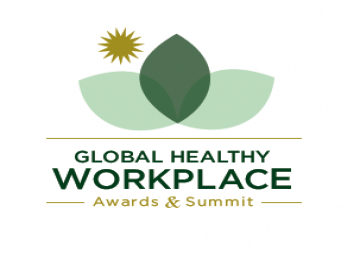
London and Philadelphia – March 25, 2013
Is the international business community a key to better global health? The answer is yes, judging by the overwhelming response by companies vying for recognition at the inaugural Global Healthy Workplace Awards and Summit to be held in London April 10-12. The search for the healthiest workplaces in the world is sponsored by the Cigna Foundation and hosted by the Global Knowledge Exchange Network (GKEN) together with International Health Consulting and i-genius, whose common goal is to promote awareness of emerging better practices in health promotion and wellness in the workplace.
Global corporate giants together with small and mid-sized companies from 28 countries submitted workplace programs for consideration among the world’s healthiest workplaces. The submissions were reviewed by an international panel of public health experts from five continents who judged the workplace programs – for the first time – through the lens of the World Health Organization (WHO) Healthy Workplace Model for Action. The WHO has identified the international business community as a vital component of developing and maintaining healthy communities around the world. Employers heeded the call and have developed far-reaching programs to help their employees and the communities they serve maintain good health.
“All industrialized nations are faced with the same workplace health challenges: escalating health care costs, aging populations, a dramatic rise in chronic disease, public expectations and limited resources to meet those expectations, said David Guilmette, President of Cigna’s Employer Health Business. “Each business – and each nation – is working to constructively tackle these challenges, but imagine the power of collaborating to address these challenges together. That’s the reason we’re all coming together in London for the Global Healthy Workplace Awards and Summit.”
Dame Carol Black, United Kingdom National Director for Health and Work and Chairman of the Nuffield Trust will serve as keynote speaker for the Summit, joined by distinguished speakers including
Evelyn Kortum, Technical Officer of Occupational Health for the WHO. The Summit has attracted more than 100 employers of all sizes, health system leaders, universities, NGOs, world-renowned award judges and speakers – along with six companies representing award finalists in three categories: Large Enterprises, Small and Mid-Sized Enterprises and Specialized Programs. Here are the finalists:
- Johnson & Johnson first set health goals 30 years ago and has continuously improved its employee culture of health to reduce the risk of chronic disease, promote well-being, and sustain employee good health. J&J’s average annual per employee savings was $565 in 2009, producing a return on investment equal to a range of $1.88-$3.92 saved for every dollar spent on the program.
- Alexandra Health Pte. Ltd of Singapore implemented a workplace health strategy built on its “5 Pillars of Health” culture and designed to keep Singaporeans healthy and out of the hospital.
- Technica International of Lebanon, a family business of 140 employees, incorporated all of its health, safety and environment initiatives under its Employee Satisfaction Program. Technica has shared its expertise with 32 other companies in Lebanon.
- Toyal America, a self-insured company, launched the “Changes that Last a Lifetime” program in 2009 to improve employee health and reduce health care costs. Toyal reversed a multi-year trend of increased health insurance premiums and lowered its workers compensation experience through multiple safety improvements.
- American Express launched its Healthy Living program in 2009 in the United States and now offers it to employees and dependents in 13 countries, with the United States, India, UK, Mexico and Singapore being the mature markets. The company offers global innovation grants, which includes, in the UK, installing exercise bikes in a gym that generate electricity to power mobile phones.
- Royal Dutch Shell in the Netherlands and UK created the Global Resilience Program in 2011, which goes beyond existing stress management programs into positive psychology and personal development. The in-house program is run by 1,132 trained facilitators and is being fully integrated into leadership training and managers’ annual goal setting with individual Shell employees.
The award finalists will present their programs amid a two-day Summit agenda packed with information on emerging and better practices for promoting workplace health, from addressing the aging employee population to protecting workers’ mental health and fighting chronic disease among the world’s workforce. The award winners will be selected at the Summit and announced at the closing lunch on April 12.
“Together, we’re all searching for the healthiest workplaces in the world, and this event is an important step in helping us learn what it takes to create a healthy workplace and how other organizations can do the same,” said Jon Comola, executive director of GKEN. “Through sustained global communications to large, medium and small businesses, we will enable organizations around the globe to replicate these better workplace practices. The Summit and follow up communication program will encourage employers to further invest in the health of their employees and champion the mantra, ‘Good Health is Good Business!’” Comola said.
For more information, go to www.globalhealthyworkplace.com
- J&J, Alexandra Health in Singapore are finalists among large employers
- Toyal America, Technica International of Lebanon cited among smaller employers
- American Express, Royal Dutch Shell recognized for specialized programs
- Award criteria based on WHO Healthy Workplace Model for Action
- UK’s Dame Carol Black announced as keynote speaker
- Search for healthiest workplaces is sponsored by the Cigna Foundation

